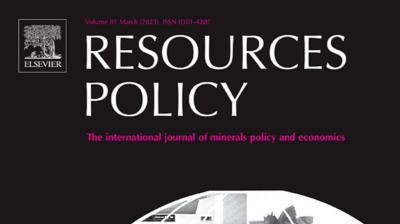Research and Advisory Work on Taxation and Public Finance Management in Tanzania 1993-2023
2024 marks the 60th anniversary of the United Republic of Tanzania (URT). The state was founded on 26 April 1964. It was then named the United Republic of Tanganyika and Zanzibar. On 29 October 1964, the country was renamed the United Republic of Tanzania (“Tan” comes from Tanganyika and “Zan” from Zanzibar). Julius Kambarage Nyerere became the first President of the URT and Sheikh Abeid Karume became the First Vice President of the URT and President of Zanzibar.
From the initial stage, the international community provided substantial financial and technical assistance to Tanzania. Support to core government institutions and building administrative capacity in public finance management were considered essential elements of the international engagement. There was a great demand for economists to assist in economic analysis and planning and in expanding statistics as basis for improved insight and planning. Chr. Michelsen Institute (CMI) had already extensive experience from such work in Pakistan and other countries in Asia. From 1966 and onwards into the 1970s, CMI was engaged to prepare input-output tables for the newly independent countries in East Africa. CMI researchers Hans-Erik Dahl and Just Faaland conducted econometric studies of the structure of the Tanzanian economy with projections of trade and resource gaps (published in the UNCTAD Secretariats’ book Trade prospects and capital needs of developing countries, 1968, pp. 187-230). Research on the tax systems in East Africa was also covered by this work, e.g. Dahl (1971) Progressivity-regressivity properties of the Kenyan, Ugandan and Tanzanian tax systems: governments vs. private sector consumption and savings (DERAP Paper 25, CMI). This early work was funded by the Ford Foundation, the World Bank (IBRD) and Norwegian development aid.
Since then, CMI’s engagement in Tanzania has expanded substantially. The pillars of CMI’s work are quality research grounded in theory and generally based on extensive fieldwork, diversity in disciplines and methods and extensive research communication. CMI researchers work closely with partners in Tanzania to ensure that local perspectives influence priorities and research questions. Thematically, CMI’s work in Tanzania has covered a wide range of topics such as industrial development, local government reforms, management of extractive resources, rural and agricultural sector development, entrepreneurship, health and education sector reforms, effects of climate change on livelihoods, and taxation and public finance management. This work has involved CMI researchers from all social science disciplines, particularly economics, political science and social anthropology, and increasingly also collaboration between social and natural scientists.
No updated overview exists of CMI’s extensive research and advisory work in Tanzania and other countries, though some ‘snapshots’ are covered by Ole David Koht Norbye (1995) and Hilde Reinertsen (2008), and by external evaluations of the Institute, e.g. Göran Hydén et al. (2006). The attached note is an attempt to give a synopsis of CMI’s work on one of the thematic areas mentioned above: “Taxation and Public Finance Management” over the last three decades 1993-2023. The previous 30 years remain to be covered.





